Citric Acid Manufacturer and Supplier
Citric Acid
Citric Acid Manufacturers, Citric Acid Suppliers, Citric Acid Formula, Citric Acid MSDS, Citric Acid SDS, Citric Acid Exporter in Mumbai, India.
Vinipul Chemicals Pvt. Ltd., a renowned manufacturer, supplier, and exporter based in India, specializes in producing high-purity Citric Acid (CAS No. 77-92-9). As a leading Citric Acid manufacturer, our company is widely recognized for its commitment to delivering top-quality specialty chemicals with exceptional accuracy in composition and an absence of impurities.
To ensure the highest standards of purity, we utilize superior-quality chemicals and employ state-of-the-art manufacturing equipment, adhering to international industry guidelines. As a reliable Citric Acid supplier, we take pride in offering C6H8O7 that exhibits superior quality, precisely meeting the required composition specifications, and boasting an extended shelf life.
By choosing Vinipul Chemicals Pvt. Ltd., you can trust that you are obtaining Citric Acid of the finest grade, manufactured with meticulous attention to detail and quality control. As a prominent Citric Acid manufacturers in India, We prioritize the satisfaction of our customers by consistently delivering products that meet their stringent requirements.
What is Citric Acid?
Citric acid is a translucent and odourless substance that forms colourless crystals. It has a sour taste and is denser than water. Chemically, citric acid is classified as a tricarboxylic acid, specifically propane-1,2,3-tricarboxylic acid with a hydroxy group attached to position 2. Citric acid serves as a crucial component in the metabolic processes of all aerobic organisms. Citric acid has various roles, such as being used as a food acidity regulator, a chelating agent, an antimicrobial agent, and a fundamental metabolite. In its ionized form, it acts as the conjugate acid of a citrate(1-) ion and a citrate anion.
Citric Acid Details
This table provides information about Citric Acid, a chemical compound with the CAS No. 77-92-9 and EC Number. 201-069-1. The table also lists various Citric Acid common name and synonyms. The table contains Citric Acid structure, Citric Acid solubility and molecular formula. Citric Acid ph. value is also mentioned in the table. Citric Acid is commonly used in various industries in different applications.
Specifications
| Chemical name | Citric Acid |
| CAS No | 77-92-9 |
| EC Number | 201-069-1 |
| Commercial name / Synonyms | citric acid, 77-92-9, 2-hydroxypropane-1,2,3-tricarboxylic acid, Citric acid, anhydrous,Anhydrous citric acid, Citro, Citretten, Aciletten, Chemfill |
| Molecular formula | C6H8O7 CH2COOH-C(OH)COOH-CH2COOH |
| Chemical Structure | 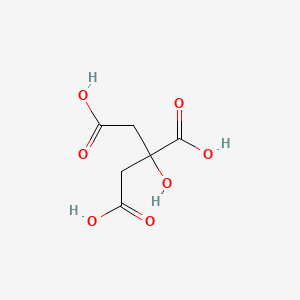 |
| Melting Point | 307 °F (anhydrous) (NTP, 1992) |
| IUPAC Name | 2-hydroxypropane-1,2,3-tricarboxylic acid |
| Physical Form | Crystals; monoclinic holohedra; crystallizes from hot concentrated aqueous solution |
| Physical Appearance | Colorless Odorless Crystals |
| Solubility in water , g/100ml at 20 °C | 59 |
| Solubility | Soluble in acetone, alcohol, ether, ethyl acetate, DMSO Insoluble in C6H6, CHCl3, CS2, toluene |
| pH | 3–6 |
| Packaging Details | 25 kg / 50 kg / HDPE packaging bags / Drum/ As per Client’s requirements |
Computed Properties
The table provides various properties of a chemical compound, including molar mass of citric acid, hydrogen bond acceptor counts, an exact mass and mono-isotopic mass, heavy atom counts, and a topological polar surface area. These properties are useful in identifying and characterizing the compound for various purposes in industries such as pharmaceuticals and chemicals.
| Property Name | Property Value |
| Molecular Weight | 192.12 g/mol |
| XLogP3 | -1.7 |
| Hydrogen Bond Donor Count | 4 |
| Hydrogen Bond Acceptor Count | 7 |
| Exact Mass | 192.02700259 g/mol |
| Monoisotopic Mass | 192.02700259 g/mol |
| Heavy Atom Count | 13 |
| Topological Polar Surface Area | 132Ų |
| Complexity | 227 |
| Covalently-Bonded Unit Count | 1 |
| Compound Is Canonicalized | Yes |
Related Compounds with Annotation
The table provides information on various compounds and their characteristics related to citric acid. The first compound is 2-Isopropylmalic acid, also known as alpha-isopropylmalic acid, with a compound CID of 77. It has 2D+3D structure representation and is associated with 7 different types of annotations. The second compound is ACONITIC ACID, also called 1-Propene-1,2,3-tricarboxylic acid, with a compound CID of 309. It has a 2D+3D structure representation and is linked to 12 annotation types. The third compound is citric acid, with a compound CID of 311. It is represented in 2D+3D structure and has 17 different annotation types. The fourth compound is 3-hydroxybutane-1,2,3-tricarboxylic acid, also known as threo-alpha-Methylisocitrate, with a compound CID of 513. It has a 2D+3D structure representation and is associated with 7 annotation types. Finally, the fifth compound is 2-Methylcitric acid, with a compound CID of 515. It has a 2D+3D structure representation and is linked to 10 different annotation types.
Citric Acid Price
If you are looking to purchase Citric Acid, it’s important to know the current citric acid price in india. Citric Acid price per kg can vary depending on the various factors. Vinipul Chemicals offers the best citric acid powder price in the market listed below: –
| Product Range | Price |
| Citric Acid Monohydrate | Rs 160/Kg |
| Citric Acid Anhydrous | Rs 170/Kg |
| Citric Acid Monohydrate 8-40 | Rs 155/Kg |
Prices shown above are provisional prices and may change due to different market conditions for latest prices
Call Us
+91-932 223 1817
Mail Us
business@vinipulchemicals.com
Types of Citric Acid
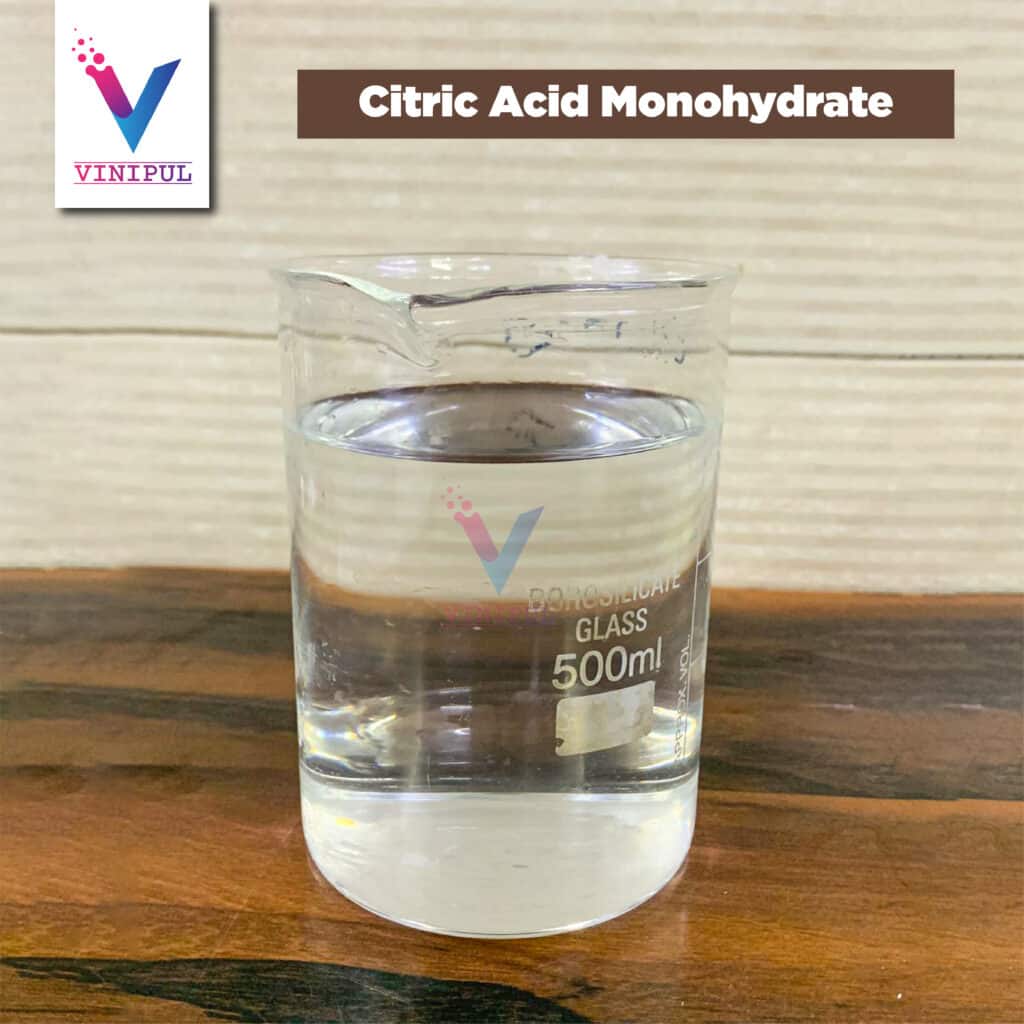
Citric Acid Monohydrate
Citric acid monohydrate is a form of citric acid that contains one molecule of water. It appears as colourless crystals and is commonly used in various industries, including food and beverage, pharmaceuticals, and cosmetics. It is often preferred in applications where precise water content is required or where the presence of water is desired for specific formulations.
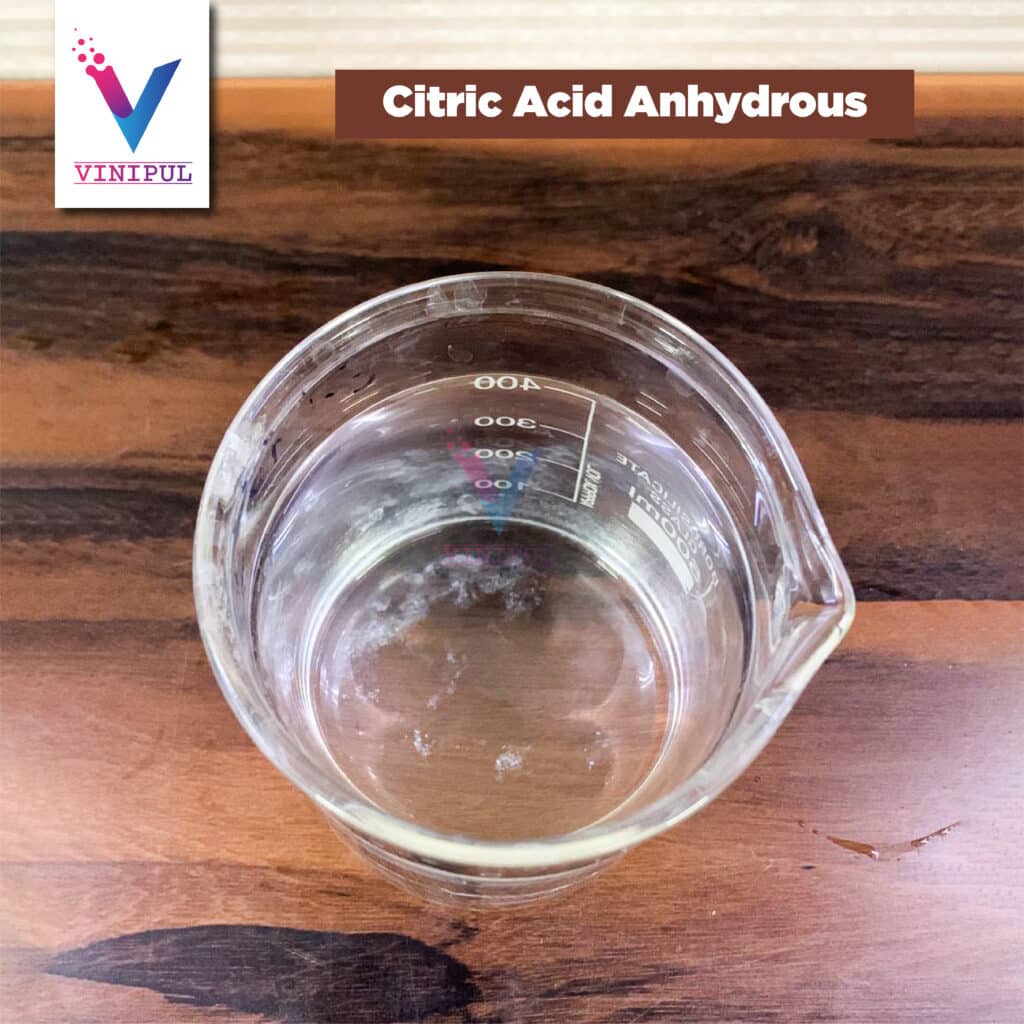
Citric Acid Anhydrous
Anhydrous citric acid is the anhydrous, or water-free, form of citric acid. It is a white, crystalline powder and is the most commonly used form of citric acid. It is highly soluble in water and widely utilized in food and beverage production as a flavour enhancer, acidulant, and preservative. Citric acid anhydrous also finds applications
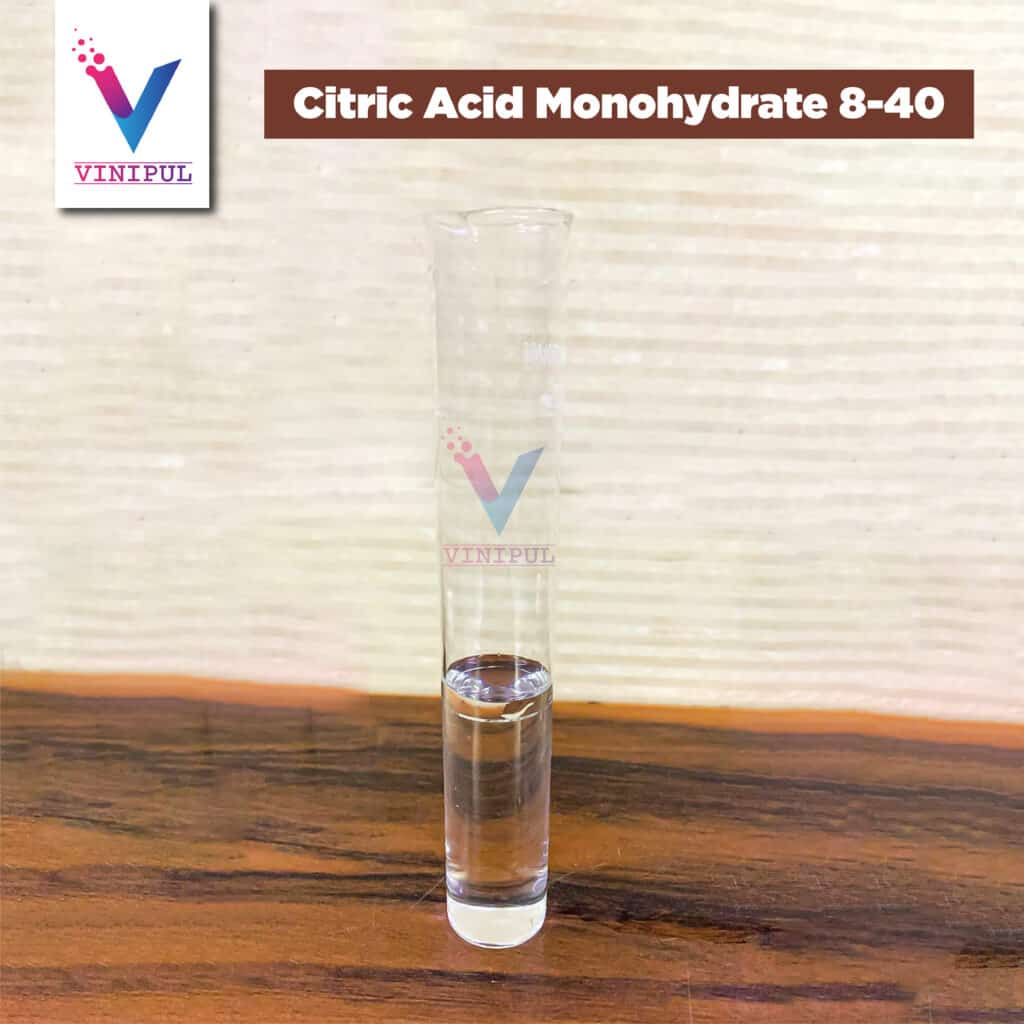
Citric Acid Monohydrate 8-40
Citric acid monohydrate 8-40 is a specific grade of citric acid monohydrate that refers to the particle size range. It indicates that the crystals of citric acid monohydrate fall within the size range of 8 to 40 mesh. The mesh size is a measure of the particle size distribution, with larger numbers representing smaller particle sizes.
Prices shown above are provisional prices and may change due to different market conditions for latest prices
Call Us
+91-932 223 1817
Mail Us
business@vinipulchemicals.com
How to make a Citric Acid solution?
The industrial production of citric acid involves the microbial fermentation process using specific strains of Aspergillus niger. This process occurs on the surface of a solution containing sucrose and salt. In the submerged process, Aspergillus niger mold spores are cultivated under carefully controlled and sterile conditions. Initially, the mold spores are grown in test tubes and then transferred to a seed tank or inoculum. This inoculum is later added to a large fermenter along with pasteurized syrup. The pH level is adjusted, and additional nutrients are provided to support microbial growth. Sterile air is introduced into the fermenter, allowing the sugar present in the syrup to be converted into citric acid through microbial activity. To purify the citric acid, it is commonly treated using either a lime-sulfuric acid method or a liquid extraction process. These purification methods help remove impurities and refine the citric acid for commercial use.
Once the mixture is prepared, it is left to react for a minimum of 48 hours. During this period, the reaction occurs at normal temperature and pressure, while continuous agitation is maintained. This allows for optimal interaction between the shell, glacial acetic acid, and water, promoting the formation of calcium acetate.
After the reaction period, the mixture undergoes a series of important processing steps. Firstly, primary filtration is carried out to separate any solid impurities or undissolved particles from the liquid mixture. This step ensures the removal of unwanted substances, leaving behind a cleaner solution.
The next step is fine filtration, which further refines the liquid by removing any remaining impurities or suspended solids. This process helps to achieve a higher level of purity in the calcium acetate solution.
To enhance the appearance and quality of the final product, a discoloration step is performed. This step involves the use of specific techniques or agents to eliminate any coloration or discoloration present in the solution, resulting in a clear and colourless liquid.
Finally, the liquid solution is subjected to a drying process to remove the water content. This is crucial because the anhydrous form of Calcium Acetate, which is highly hygroscopic, is desired for certain applications. By eliminating water, the Calcium Acetate is transformed into an anhydrous state or a powdered form known as Calcium Acetate Anhydrous.
Is citric acid being Natural?
Yes, citric acid is naturally present in various fruits and vegetables. It is a natural compound found in citrus fruits like lemons, limes, oranges, and grapefruits. Additionally, it can also be found in other fruits like pineapples, strawberries, and tomatoes. In these natural sources, citric acid contributes to the tart or sour taste.
However, the citric acid used as a food and beverage additive is typically not extracted directly from fruits. Instead, it is often produced through a fermentation process using certain strains of mold, such as Aspergillus niger. This manufactured citric acid, also known as MCA, is chemically identical to the naturally occurring citric acid found in fruits and vegetables.
So, while citric acid can be considered natural when it is derived from fruits and vegetables, the citric acid commonly used as an additive is usually the manufactured version.
What foods have added citric acid?
Citric acid is commonly added to a wide range of foods and beverages. Citric acid can be found in soft drinks, fruit juices, jams, jellies, canned fruits and vegetables, candies, dairy products, salad dressings, sauces, baked goods, and cured meats. It is used as a flavour enhancer, tartness provider, preservative, and acidity regulator in these food items. Reading ingredient labels can help determine if a specific product contains added citric acid.
Industrial Applications
Citric acid is widely used in various industrial applications due to its versatile properties. Here are some of the common industrial citric acid uses include:

Water Treatment
It is employed in water treatment processes to control the pH level and remove metal ions. It acts as a chelating agent, binding to metal ions like calcium and magnesium, thereby preventing scaling and improving water quality.

Pharmaceutical Industry
Citric acid finds applications in the pharmaceutical industry as an excipient in oral medications. It is used to enhance the taste of syrups, effervescent tablets, and chewable tablets. Citric acid can also be utilized in compounding medicines and as a pH adjuster in various pharmaceutical formulations.

Cleaning Products
Citric acid’s chelating and cleaning properties make it an essential component in household cleaning products. It is used in dishwashing detergents, toilet bowl cleaners, surface cleaners, and descaling agents. Citric acid effectively removes mineral deposits and hard water stains.

Food and Beverage Industry
It is extensively used as an acidulant, flavour enhancer, and preservative in the food and beverage industry. It adds a tangy taste to soft drinks, candies, jams, and gelatin desserts. It also helps to prevent the browning of fruits and vegetables, acts as a pH control agent, and aids in the formation of stable emulsions in food products.
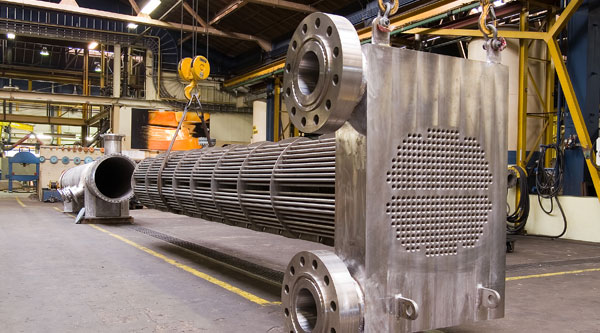
Industrial Applications
Citric acid finds use in various industrial applications, including metal cleaning and metal plating processes. It is also utilized as a buffering agent, pH controller, and complexing agent in chemical processes and formulations.
Overall, citric acid’s versatility, natural origin, and safe profile make it a valuable ingredient in numerous industrial sectors, contributing to the quality and performance of various products and processes.
What is Citric Acid used for?
Citric acid has a wide range of applications in various industries. Here are some specific applications of citric acid:
- Resin Manufacturing: Citric acid is utilized in the production of alkyd resins, which are commonly used in paints, coatings, and adhesives.
- Food and Beverage Industry: It is used to adjust the pH of foods and acts as a synergistic antioxidant in cheese processing. It provides tartness in beverages, jellies, jams, preserves, and candy.
- Plasticizer and Foam Inhibitor: In its esterified form, citric acid serves as a plasticizer and foam inhibitor in various industrial processes.
- Citric Acid Salts: It is used in the manufacture of different citric acid salts, which have numerous applications in food and pharmaceutical industries.
- Sequestering Agent: Citric acid acts as a sequestering agent, effectively removing trace metals in various applications, including cleaning products and water treatment.
- Mordant: In dyeing processes, citric acid functions as a mordant, enhancing color brightness and fixation.
- Special Inks: It is utilized in the formulation of special inks for specific applications.
- Electroplating: Citric acid finds application in electroplating processes, assisting in metal deposition.
- Analytical Chemistry: Citric acid is employed in analytical chemistry for determining citrate-soluble P2O5, a measure of phosphorus content.
- Reagent: It is used as a reagent for various substances such as albumin, mucin, glucose, and bile pigments.
- Anticoagulant: Citric acid is utilized as an anticoagulant in blood intended for transfusion, preventing clotting.
These diverse applications highlight the versatility and importance of citric acid in various industries.
Where to Buy Citric Acid?
If you are looking to purchase Citric Acid, you can consider contacting Vinipul Chemicals Pvt. Ltd. A reputable company, based in India, specializes in the manufacturing, supplying, and exporting of high-purity Citric Acid. As prominent Citric Acid manufacturers, we are known for our commitment to producing products with accurate composition and minimal impurities, meeting international industry standards. To buy Citric Acid from Vinipul Chemicals, a leading Citric Acid suppliers, you can visit our official website or contact the sales team directly. We will provide you with detailed information about product availability, pricing, and shipping options. Additionally, we also assist you with any specific requirements or customization needs related to Citric Acid.
FAQ's
Yes, citric acid is generally recognized as safe for consumption by regulatory authorities when used in appropriate quantities. It is commonly found in many food and beverage products.
Yes, citric acid is used in cooking and baking as an acidulant, flavour enhancer, and preservative. It provides a tangy taste and can be used in recipes for sauces, dressings, desserts, and more.
Yes, citric acid is typically considered suitable for vegetarian and vegan diets as it is derived from natural sources or produced through fermentation processes.
Yes, citric acid is commonly used in cosmetics and personal care products as a pH adjuster, exfoliant, and preservative. It can be found in skin care products, shampoos, and various other formulations.
Citric acid is available in different forms, including powder and crystals. It is typically packaged in various sizes such as HDPE packaging bags or Drums or as per Client’s requirements of quantity required.
Citric acid is considered relatively environmentally friendly as it is derived from natural sources and is biodegradable. However, its environmental impact may vary depending on the specific production processes and disposal methods.
While rare, some individuals may be sensitive or allergic to citric acid. It is recommended to consult with a healthcare professional if you suspect any adverse reactions.
Citric acid should be stored in a cool, dry place, away from moisture and direct sunlight. It is important to follow the storage instructions provided by the manufacturer or supplier.
Yes, citric acid is used as a cleaning agent and descaler due to its ability to remove mineral deposits. It is commonly found in household cleaning products, especially those designed for removing limescale.
Citric acid is generally safe to handle, but it is advisable to follow proper safety precautions, such as using protective gloves and avoiding inhalation of dust or mist when handling concentrated forms.
Yes, citric acid is often used as a natural preservative in food and beverage products. Its acidic properties help inhibit the growth of microorganisms and extend the shelf life of certain products.
Yes, citric acid can be incorporated into homemade skincare products, such as facial toners or exfoliating scrubs, to provide exfoliation and pH balancing effects. It is important to follow proper formulation guidelines and dilution recommendations.
Citric acid is available at various retailers, including online marketplaces, and chemical suppliers. Vinipul Chemicals Pvt. Ltd., a renowned manufacturer, supplier, and exporter of Citric acid based in Mumbai, India.
Market Area
We supply and exports Citric Acid in all parts of the world such as
Citric Acid in Africa Countries
South Africa , Nigeria, Kenya, Ghana, Ethiopia, Tanzania, Algeria, Angola, Benin, Botswana, Burkina Faso, Burundi, Cabo Verde, Cameroon, Central African Republic (CAR), Chad, Comoros, Democratic Republic of the Congo, Côte d’Ivoire, Djibouti, Egypt, Equatorial Guinea, Eritrea, Gabon, Gambia, Guinea, Guinea-Bissau, Lesotho, Liberia, Libya, Madagascar, Malawi, Mali, Mauritania, Mauritius, Morocco, Mozambique, Namibia, Nigeria, Rwanda, Sao Tome and Principe, Senegal, Seychelles, Sierra Leone, Somalia, South Sudan, Sudan, Swaziland, Togo, Tunisia, Uganda, Zambia, Zimbabwe.
Calcium Acetate in Gulf Countries
Oman, Qatar, Kuwait, Saudi Arabia, Dubai, Bahrain, Iran, United Arab Emirates
Citric Acid in Asia Countries
Afghanistan, Armenia, Azerbaijan, Bahrain, Bangladesh, Bhutan, Brunei, Cambodia, China, Cyprus, Georgia, India, Indonesia, Iran, Iraq, Israel, Japan, Jordan, Kazakhstan, Kuwait, Kyrgyzstan, Laos, Lebanon, Malaysia, Maldives, Mongolia, Myanmar (Burma), Nepal, North Korea, Oman, Pakistan, Palestine, Philippines, Qatar, Russia, Saudi Arabia, Singapore, South Korea, Sri Lanka, Syria, Taiwan, Tajikistan, Thailand, Timor-Leste, Turkey, Turkmenistan, United Arab Emirates (UAE), Uzbekistan, Vietnam, Yemen
We supply Citric Acid in all parts of India.
Andhra Pradesh, Arunachal Pradesh, Assam, Bihar, Chhattisgarh, Goa, Gujarat, Haryana, Himachal Pradesh, Jammu & Kashmir, Jharkhand, Karnataka, Kerala, Madhya Pradesh, Maharashtra, Manipur, Meghalaya, Mizoram, Nagaland, Odisha, Punjab, Rajasthan, Sikkim, Tamil Nadu, Telangana, Tripura, Uttarakhand, Uttar Pradesh and West Bengal.
Note: – Please be advised that the information contained in this document is intended for illustrative purposes only. Due to variations in product grade, applications, industries, or uses, the accuracy of the information provided cannot be guaranteed. © Copyright 2023 © Vinipul Chemicals All Rights Reserved (Terms of Use). Reproduction of any material from this site is strictly prohibited without permission. Vinipul Chemicals products are exclusively sold through the company’s website. For precise product specifications and requirements, as well as advice on which products are best suited for your specific application needs, please contact us at business@vinipulchemicals.com Use Terms | Privacy.


